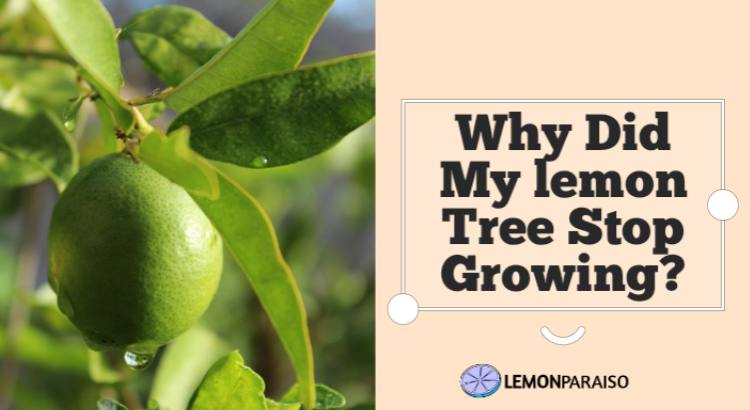Do You Need 2 Lemon Trees To Produce Fruit?

Lemon trees are a popular fruit tree that many gardeners and citrus enthusiasts love to grow in their gardens or homes. However, there is a common misconception that lemon trees require a pair of trees to produce fruit. This notion has led to confusion and frustration for many gardeners who are uncertain about whether they need to plant two lemon trees to get a successful harvest.
Do You Need 2 Lemon Trees To Produce Fruit?
No, you don’t necessarily need two lemon trees to produce fruit. Many lemon tree varieties are self-fertile, meaning they can produce fruit without the need for cross-pollination from another tree. However, having multiple trees in close proximity can improve fruit production, as it increases the chances of pollination.
It’s important to note that some varieties may require cross-pollination, so it’s a good idea to research the specific type of lemon tree you are growing. Ultimately, a single lemon tree can produce fruit, but having more than one can provide additional benefits.
How Many Lemon Trees Do You Need To Produce Fruit?
A single lemon tree is often sufficient for fruit production, as most varieties are self-pollinating. Even so, planting multiple trees can enhance overall fruit yield and quality, due to the increased likelihood of cross-pollination.
The optimal number of trees will depend on the space available in your garden or orchard, as well as your desired fruit yield. Keep in mind that some lemon tree varieties may require cross-pollination, so it’s essential to research the specific type you’re growing.
Can A Single Lemon Tree Produce Fruit?
Yes, a single lemon tree can produce fruit, as most varieties are self-pollinating. This means they can produce fruit without the need for another lemon tree for cross-pollination.
However, having additional lemon trees nearby can improve fruit production and quality, as it increases the chances of pollination. If you have limited space or are only interested in growing one tree, rest assured that a single lemon tree can still yield fruit.
Do Lemon Trees Need A Pollinator To Produce Fruit?
Lemon trees, in general, do not require a pollinator to produce fruit, as they are predominantly self-fertile. However, the presence of pollinators such as bees can still enhance fruit production and quality by increasing the chances of cross-pollination.
Some less-common varieties of lemon trees may require cross-pollination to bear fruit, so it’s essential to research the specific type you’re growing. In most cases, though, lemon trees can produce fruit without the need for a pollinator.
Is Cross-Pollination Necessary For Lemon Trees To Bear Fruit?
Cross-pollination is not necessary for most lemon trees to bear fruit, as they are self-fertile and can produce fruit on their own. However, cross-pollination can improve fruit yield and quality by increasing the likelihood of pollination.
Some less-common lemon tree varieties may require cross-pollination, so it’s important to research the specific type you’re growing. Overall, while cross-pollination isn’t strictly necessary for fruit production, it can provide benefits in terms of yield and quality.
What Is The Best Way To Ensure Lemon Tree Fruit Production?
To ensure optimal fruit production from your lemon tree, there are several factors to consider. First, provide adequate sunlight, as lemon trees need at least six hours of direct sunlight daily. Second, ensure proper soil drainage and maintain a consistent watering schedule to prevent root rot and other issues.
Regular fertilization with a citrus-specific fertilizer can also help promote fruit production. Pruning your lemon tree to remove dead or diseased branches and maintain a healthy canopy will encourage growth and fruiting. Lastly, protect your tree from pests and diseases by regularly inspecting it and treating any issues promptly.
Can You Grow Lemon Trees Indoors And Still Get Fruit?
Yes, you can grow lemon trees indoors and still get fruit, provided you choose a suitable dwarf or semi-dwarf variety and give them the proper care. Indoor lemon trees need ample sunlight or supplemental grow lights, as well as well-drained soil and a consistent watering schedule.
Regular fertilization and occasional pruning will also help to maintain a healthy tree and promote fruit production. Keep in mind that indoor lemon trees may not produce as much fruit as those grown outdoors, and they may take longer to reach maturity.
Additionally, indoor trees may require hand-pollination to ensure fruit set, as there may not be natural pollinators like bees available. Overall, with proper care and attention, it is possible to grow a fruitful lemon tree indoors.
How Long Does It Take For A Lemon Tree To Produce Fruit?
The time it takes for a lemon tree to produce fruit can vary depending on the variety, the tree’s age, and the growing conditions. Generally, lemon trees begin to produce fruit within three to five years after planting. However, some dwarf or semi-dwarf varieties can start fruiting as early as two years.
Grafted lemon trees, which are often sold in nurseries, may produce fruit even sooner, sometimes within the first year of planting. It’s essential to be patient and provide your lemon tree with the proper care to ensure optimal fruit production.
What Are The Factors That Affect Lemon Tree Fruit Production?
Several factors can affect lemon tree fruit production, including sunlight, water, soil, temperature, fertilization, and pruning. Lemon trees require at least six hours of direct sunlight daily to produce fruit optimally. They also need well-drained soil and consistent watering to prevent issues like root rot.
Fertilization with a citrus-specific fertilizer can help promote fruit production, and regular pruning helps maintain a healthy canopy and encourages growth. Temperature is another crucial factor, as lemon trees thrive in warmer climates and can be susceptible to damage from frost or extreme cold.
How Much Sunlight Do Lemon Trees Need To Produce Fruit?
Lemon trees need at least six hours of direct sunlight daily to produce fruit optimally. Adequate sunlight is essential for photosynthesis, which allows the tree to produce the energy it needs to grow and produce fruit.
Inadequate sunlight can lead to poor growth, reduced fruit production, and an overall decline in the health of the tree. If you’re growing a lemon tree indoors or in an area with limited sunlight, consider using supplemental grow lights to ensure your tree receives enough light for proper fruit production.
What Are The Common Problems That Affect Lemon Tree Fruit Production?
Several common problems can affect lemon tree fruit production, including pests, diseases, and environmental factors. Common pests that attack lemon trees include aphids, scale insects, and citrus leaf miners, which can damage foliage and reduce fruit production. Diseases such as citrus canker, root rot, and fungal infections can also negatively impact fruit production.
Environmental factors, such as inadequate sunlight, improper watering, poor soil drainage, and extreme temperatures, can stress the tree and decrease fruit yield. To maintain a healthy, productive lemon tree, regularly inspect your tree for signs of pests and diseases, and ensure that it receives the proper care in terms of sunlight, water, and nutrients.




